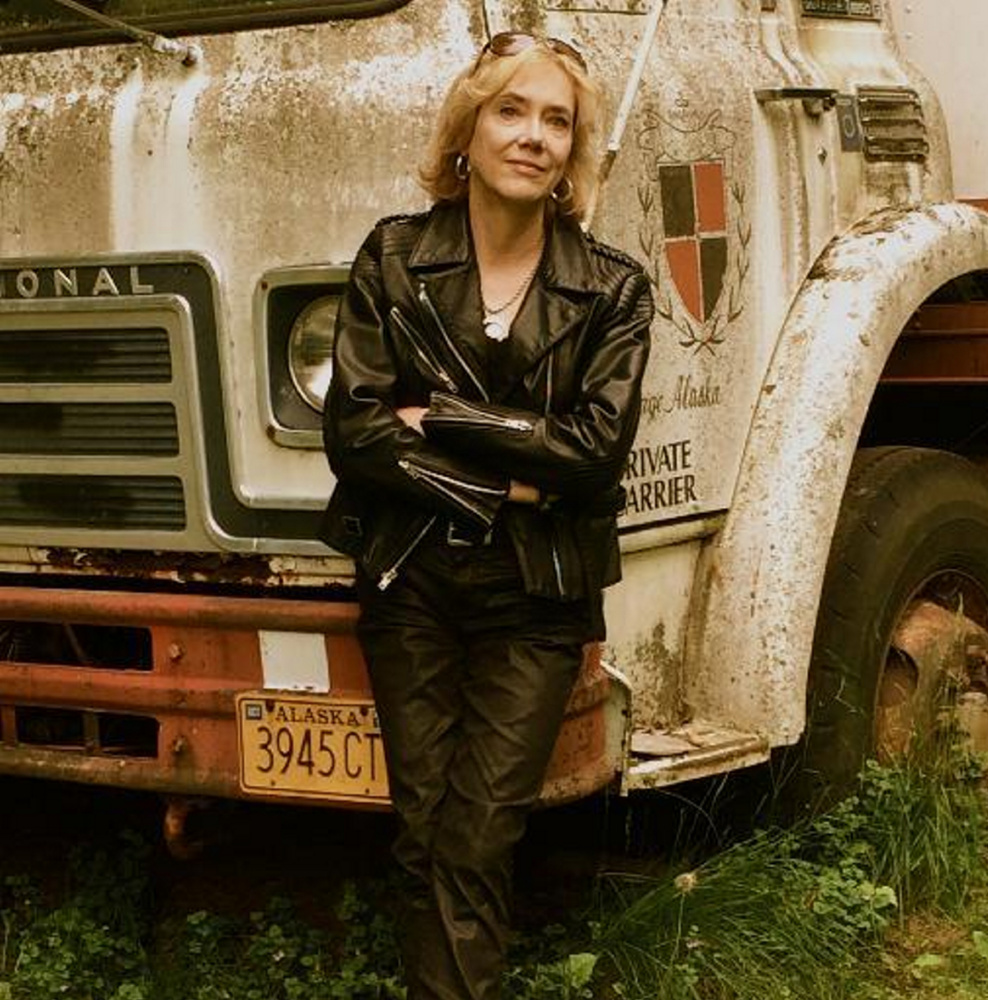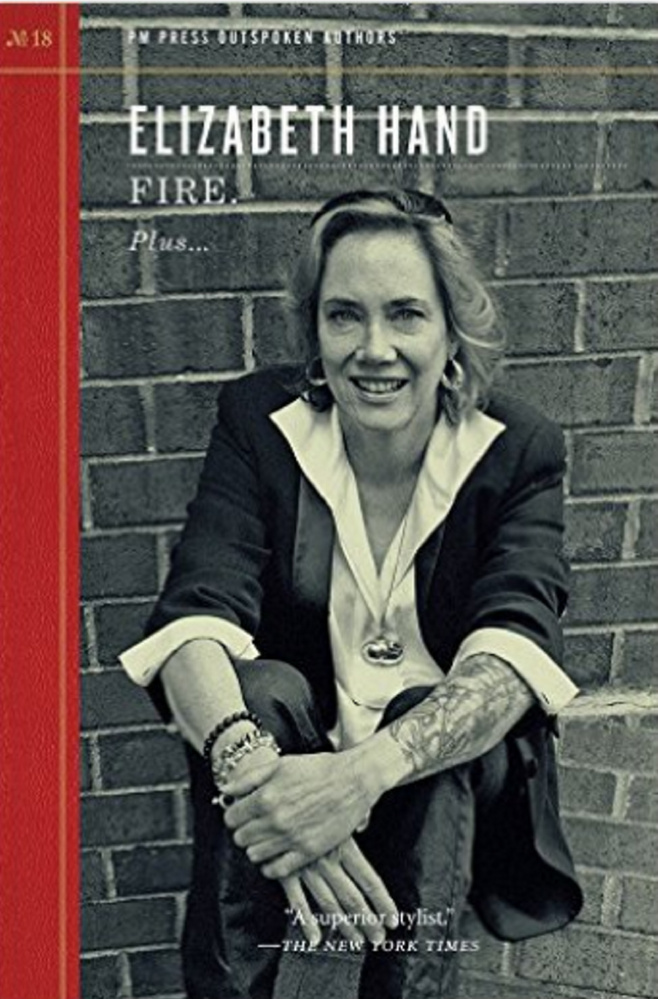Oakland, California’s PM Press is noted for its line of slim-but-substantial “Outspoken Authors” paperbacks. Coastal Maine writer Elizabeth Hand certainly fits the bill, as proved by “Fire.,” a collection of stories, essays and an interview.
Hand, the author of the Cass Neary series of punk-influenced crime novels and a winner of the World Fantasy Award and science fiction’s Nebula, doesn’t shy away from addressing life’s dangers, tragedies and absurdities in her fiction. Her reviews and literary criticism for The Washington Post, The New York Times, the Magazine of Science Fiction and Fantasy and other publications are similarly sharp-eyed.
Apocalypse, dystopia and natural disaster have always loomed large in Hand’s imagination, fueling, for example, her novels “Glimmering” and “Waking the Moon.” The selections in this latest collection reflect that tendency.
In “The Saffron Gatherers,” a woman travels to San Francisco to meet with her lover, only to be captivated by an ancient fresco prophetic in ways she cannot guess. Time, cause, effect and missed connections collide in the moving and mind-bending “Kronia.”
Written especially for this collection and based on her work as a participant in a climate change think tank, “Fire.” envisions one stand-up comic’s reaction to a conflagration of global proportions.
In her essay “Beyond Belief: On Becoming a Writer,” Hand traces her commitment to storytelling, starting with seeing the George Pal film production of “The Wonderful World of the Brothers Grimm” when she was 5 years old. From there, it was on to “The Hobbit,” the rest of Tolkien and other, more obscure fantasists. She began writing her own stories and pursuing an interest in theater at Catholic University in Washington, D.C.
Things turned dark for a while; “Bad Stuff,” as she puts it, happened, including underemployment, serious illness and a kidnapping and rape. But Hand was able to persevere in her journey to becoming a writer with a singular vision.
She writes, “Despite living in a real world that increasingly resembles that of one of my early dystopian novels, I consider myself a very lucky person.”
“Flying Squirrels in the Attic,” the Q&A between Hand and series editor Terry Bisson, is wide-ranging, touching upon her experiences as a teacher of writing, living in Maine, writing “Star Wars” juvenile novelizations about bounty hunter Boba Fett, and reading the fiction of Sarah Orne Jewett.
It’s a fun and freewheeling conversation, and Hand reveals herself as both self-effacing and confident in her talents.
Two insightful profiles of supremely talented but darkly fated authors round out the book.
“The Woman Men Didn’t See” focuses on Alice Sheldon, the CIA analyst who wrote groundbreaking, feminist science fiction under the pseudonym James Tiptree Jr.
“Tom Disch” remembers the author of “Camp Concentration” and “The Genocides” in the aftermath of his suicide. Hand illuminates their life stories with compassion and grace.
Other writers in PM’s “Outspoken Authors” series include Hugo and Nebula award winner Kim Stanley Robinson, Man Booker Prize finalist Karen Joy Fowler and Ursula K. Le Guin, recipient of the National Book Foundation Medal for Distinguished Contribution to American Letters.
Elizabeth Hand is a welcome addition to the roster, and this slender volume is an easy introduction to, or quick reminder of, her special brand of narrative magic.
Berkeley writer Michael Berry is a Portsmouth, New Hampshire, native who has contributed to Salon, the San Francisco Chronicle, New Hampshire Magazine, the Los Angeles Review of Books and many other publications. He can be contacted at:
mikeberry@mindspring.com
Twitter: mlberry
Send questions/comments to the editors.




Success. Please wait for the page to reload. If the page does not reload within 5 seconds, please refresh the page.
Enter your email and password to access comments.
Hi, to comment on stories you must . This profile is in addition to your subscription and website login.
Already have a commenting profile? .
Invalid username/password.
Please check your email to confirm and complete your registration.
Only subscribers are eligible to post comments. Please subscribe or login first for digital access. Here’s why.
Use the form below to reset your password. When you've submitted your account email, we will send an email with a reset code.